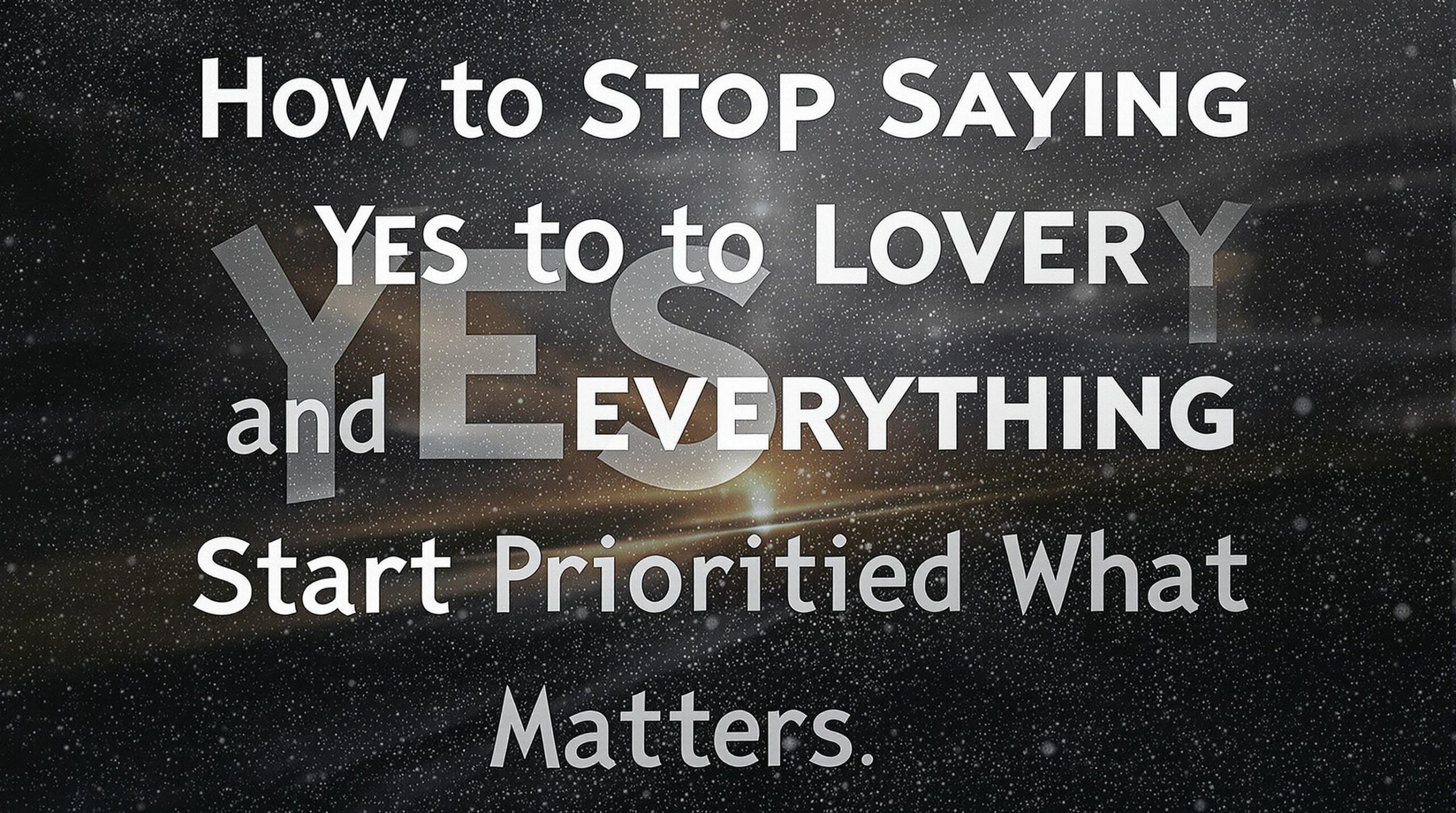If you’ve ever found yourself overwhelmed with commitments, stretched too thin, or saying yes when you really wanted to say no—you’re not alone.
In many work cultures, being constantly available and agreeable is seen as a strength. But always saying yes can quickly lead to burnout, resentment, and a sense that you’re working hard… but not on the right things.
The truth? You can’t do everything. And you’re not supposed to.
Learning to say “yes” with intention—and “no” with clarity—is one of the most powerful ways to protect your time, energy, and focus in your career.
Here’s how to stop overcommitting and start prioritizing what truly matters.
Why We Say Yes Too Often
Most people don’t say yes to everything because they want to. They say yes because of:
- Fear of disappointing others
- Fear of missing out on opportunities
- Wanting to be seen as helpful, reliable, or capable
- Lack of clarity about their own priorities
- Habit
But every yes you give without intention is a no to something else—often your own goals, rest, or peace of mind.
The Cost of Constant Yes
When you say yes to everything, you may experience:
- Chronic stress or exhaustion
- Difficulty finishing what truly matters
- Loss of clarity about your own vision
- Resentment or regret
- Feeling like your time isn’t your own
Saying yes to everything isn’t generosity—it’s self-abandonment. Real generosity requires sustainability.
Reconnect With What Matters to You
Before you can start saying no, you need to know what you’re saying yes to.
Ask yourself:
- What are my top 3 priorities right now (professionally and personally)?
- What kind of impact do I want to have through my work?
- What truly moves the needle for me?
Clarity gives you a compass. Without it, you’ll say yes to every direction—and end up going nowhere.
Use the Pause Principle
You don’t need to give an answer immediately.
When someone asks for your time, energy, or input, pause and say:
- “Let me check my calendar and get back to you.”
- “Can I have a moment to think about this?”
- “I appreciate the invitation—can I follow up tomorrow?”
Creating space gives you time to evaluate honestly, instead of reacting out of pressure or habit.
Practice Saying No (Without Guilt)
Saying no doesn’t make you selfish, lazy, or unhelpful. It makes you clear.
Try these respectful, honest phrases:
- “I’m currently focused on a few key priorities and can’t take this on right now.”
- “This sounds like a great project, but it’s not aligned with my focus at the moment.”
- “Thank you for thinking of me—unfortunately, I need to decline.”
You don’t owe anyone a long explanation. Boundaries are complete sentences.
Learn to Say Yes With Intention
Saying yes can still be powerful—when it’s done from alignment, not obligation.
Before saying yes, ask:
- Does this align with my goals or values?
- Do I truly want to do this—or just feel like I should?
- What am I sacrificing by saying yes?
If the answer is rooted in truth, energy, and purpose—go for it. If not, it’s okay to pass.
Build a “No Muscle” Over Time
Setting boundaries is a skill. Like any skill, it gets stronger with practice.
Start small:
- Say no to one meeting this week that doesn’t serve your priorities
- Protect one time block each day for deep, uninterrupted work
- Decline one request that drains your energy without guilt
Over time, your confidence grows—and so does your clarity.
Your Time Is Your Power
Time is the one resource you can’t get back. Every time you say yes to something that doesn’t matter, you say no to your focus, your purpose, and your well-being.
Choose wisely.
Say yes with care.
Say no with kindness and courage.
Because your success isn’t built on how much you do. It’s built on what you choose to do—and why you do it.
